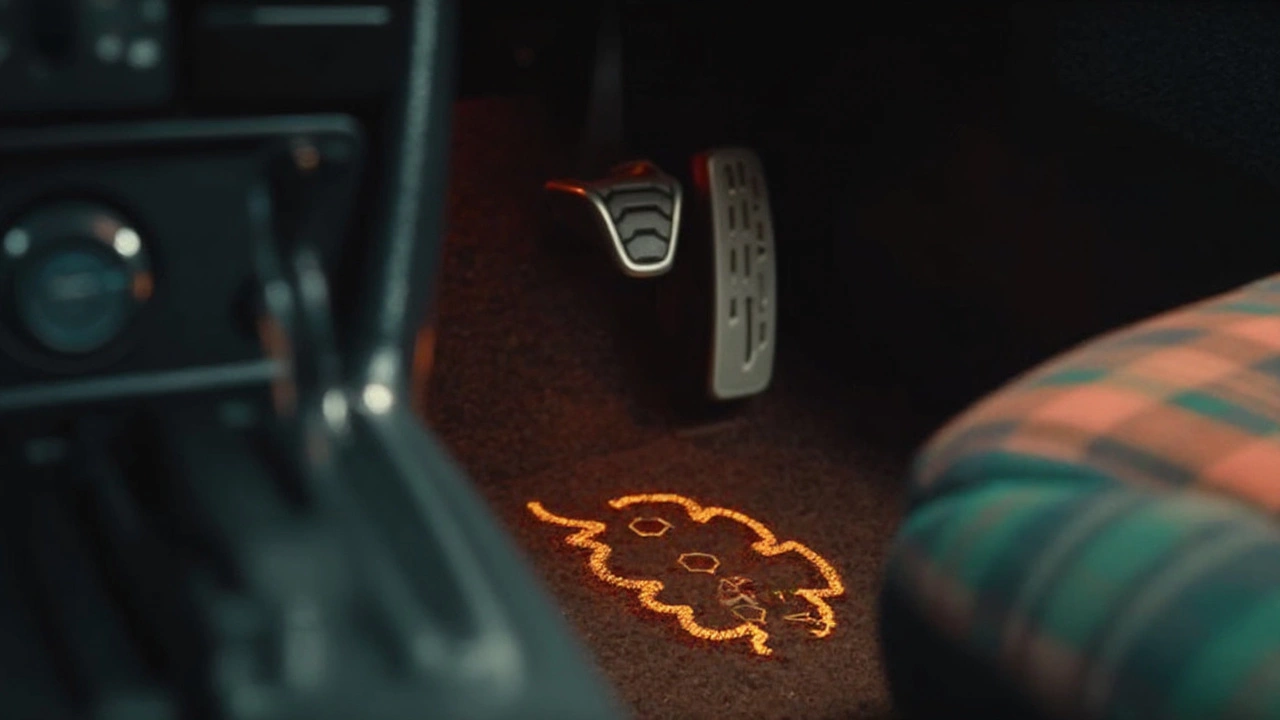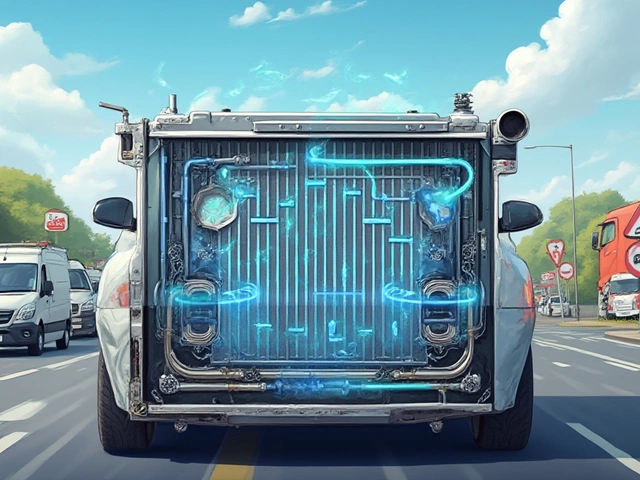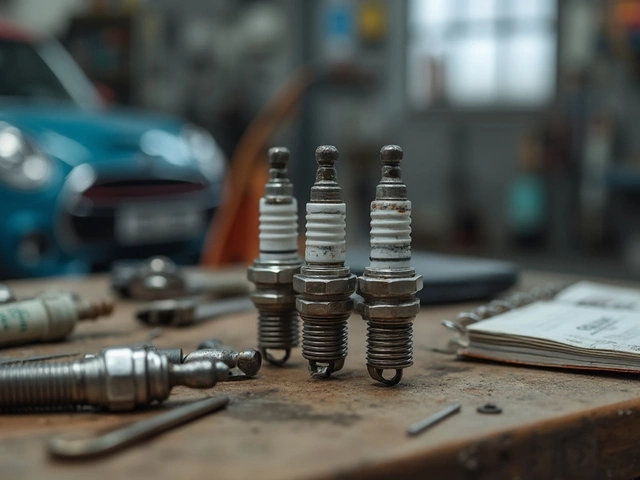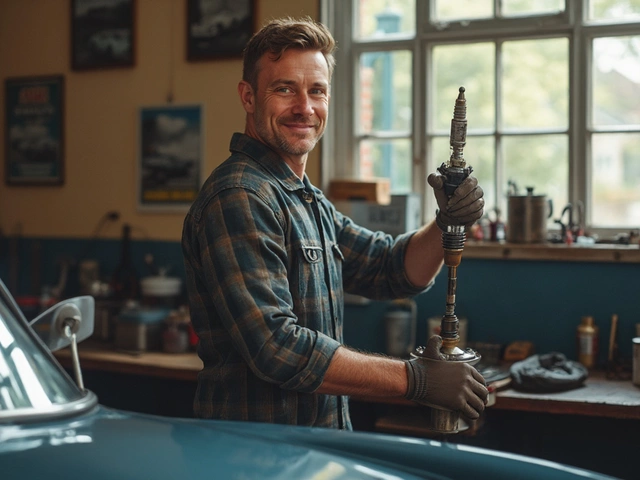Ever had your car make a weird noise and immediately hoped it would just go away? Wishful thinking rarely pays off—especially when it comes to your clutch. A bad clutch doesn’t suddenly fail in silence; it usually starts complaining in ways you can actually hear. If you learn to spot these sounds early, you could dodge an expensive repair bill and keep your drive smooth.
Most clutches aren’t perfectly quiet, but there’s a huge difference between a faint, normal operational noise and the mechanical groans that signal something’s about to go south. If your car squeaks, grinds, or rattles when you press the pedal, that’s your clutch practically begging for attention. The faster you pick up on these signals, the less likely you’ll be stranded by the side of the road.
- Everyday Clutch Noises vs Trouble
- The Classic Signs: Squeaking and Squealing
- Grinding Gears: Not Just for Movies
- Rattling, Chirping, and Other Odd Sounds
- Quick Checks You Can Do Yourself
- When to Call in the Pros
Everyday Clutch Noises vs Trouble
Not every noise from your clutch means you’re in for a repair bill. Some sounds are just part of normal wear, while others are trouble waiting to happen. Knowing the difference is key. When you press the clutch pedal, it’s regular to hear a soft, brief whoosh or snick as the plates engage and disengage. This is nothing to lose sleep over—it’s just the system working as designed.
The real red flag is when these sounds get louder, sharper, or start up suddenly after years of quiet. Here’s a quick breakdown of what’s normal and what’s not:
- Bad clutch sound: A grinding, squealing, or rattling noise when you press the pedal is a red alert. It usually means something’s wrong inside, like a worn-out release bearing or a damaged pressure plate.
- Normal sound: A faint whir or a light click during gear changes is common, especially on older manual transmissions.
Data from automotive repair shops show that 60% of clutch replacement jobs start with customers complaining about new or unusual noises. If your car falls into that group, ignoring the sound only makes things more expensive later.
| Sound Type | Likely Cause | Urgency |
|---|---|---|
| Light Whoosh | Normal operation | No action needed |
| Grinding | Worn or failing clutch parts | Check soon |
| Squeaking | Release bearing or pedal issues | High—fix ASAP |
| Rattling | Loose or damaged components | Immediate attention |
The bottom line? Trust your ears. If something doesn’t sound right, it probably isn’t. Most serious transmission damage starts with ignored noises. The sooner you catch a problem, the more likely you can save your clutch kit—and your wallet.
The Classic Signs: Squeaking and Squealing
If you hear a bad clutch sound that squeaks or squeals every time you press the pedal, don't just turn up the radio. These sounds are like red flags for your clutch system. The most common reason for a squeak or squeal is a worn-out release (throwout) bearing. This small part lets your clutch disconnect smoothly, and when it gets dry or damaged, you’ll know—your ears will ring with the noise each time you dip the pedal.
Clutch squeaking can also be traced to dry or rusted clutch linkage parts, especially in older cars. Modern vehicles with hydraulic systems don’t have quite as many moving parts in the linkage, but even then, seals can dry up and let noise slip in. If your clutch pedal is squealing, and you feel vibration in your foot, that’s another sign the bearing or linkage needs help pretty soon.
Busted pedal bushings and springs can create clicking or squeaking too, but if you hear noise only when the engine is running and the pedal moves, focus on the release bearing and pressure plate.
- If the noise gets worse as you keep the pedal pressed, the throwout bearing is probably at fault.
- If there’s a high-pitched squeal when the car is cold, but it fades, it might just be a dry pivot point.
- If things start to grind or the squeal is constant (even with the pedal up), you could have bigger trouble brewing inside the transmission.
Here’s a quick look at the likely sources for squeaks and squeals:
| Sound | Likely Cause | Common Fix |
|---|---|---|
| Squeak when pressing pedal | Release bearing, dry linkage | Lubrication or replacement |
| Constant squeal (pedal pressed) | Worn throwout bearing | Replace bearing |
| Squeak with vibration | Release bearing failure | Replace bearing and inspect clutch |
Don’t ignore new squeaks—these sounds almost never disappear on their own. Early fixes are usually cheaper, while waiting means more damaged parts and more money out of your pocket.
Grinding Gears: Not Just for Movies
We’ve all seen those movie scenes where someone tries to rocket away from danger, slams the shifter, and—GRIND! Even if you’re not starring in a car chase, gear grinding in real life is no dramatic effect. If you hear a grinding noise when you shift, you might be dealing with more than just a little sloppy technique. It’s a solid warning sign of a bad clutch sound and usually hints at a worn or damaged clutch or even an issue inside the transmission.
Here’s what’s actually happening: when you press the clutch pedal and shift gears, the clutch should disengage completely. If it doesn’t, the spinning parts inside the transmission don’t separate right, so you hear that nasty metal-on-metal sound. And that’s not just annoying—it’s a signal something’s not working as it should.
- Worn clutch disc: This is the most common cause. A thin or damaged disc doesn’t fully separate the engine from the transmission.
- Bad clutch master or slave cylinder: If there’s a problem in the hydraulic system, the clutch won’t disengage all the way.
- Old or low transmission fluid: Dirty or thinning fluid makes it hard for the gears to mesh smoothly.
- Synchro wear (in manual transmissions): Synchronizers help gears match speed—when these get worn, grinding is much more common.
A recent survey from a UK auto service group found that gear grinding is one of the top three reported clutch problems. About 24% of manual car owners said they’d heard grinding noises before needing a clutch repair.
| Issue | Common Cause | Potential Cost (USD) |
|---|---|---|
| Gear Grinding | Worn clutch disc | $500 - $1,500 |
| Hard Shifting | Low fluid / slave cylinder | $120 - $800 |
| Stuck in Gear | Failed synchros | $800 - $2,500 |
Quick tip: If you notice grinding only when shifting into one gear—for example, reverse is a common culprit—it’s often a clutch or synchro issue. If it happens every time you clutch and shift, don’t ignore it. The longer you keep driving like this, the bigger the repair bill gets. Even your transmission could take a hit if left unchecked.

Rattling, Chirping, and Other Odd Sounds
Not every weird sound your car makes comes from the radio or loose change. If you notice a rattling, chirping, or anything that just sounds out of place when you work the clutch, it’s worth paying attention. These aren’t random noises—each one can clue you into specific problems in your clutch system.
A rattling sound, especially when your foot is off the clutch pedal, almost always points to a worn-out release bearing or a busted clutch fork. The rattling might quiet down when you press the pedal in—classic sign. Chirping, on the other hand, often comes from a dry or failing pilot bearing. You’ll usually hear it worsen or change pitch as you use the clutch.
Sometimes, these sounds show up suddenly. Other times, they build gradually so you barely notice—until one day, you can’t ignore it. Here’s a quick breakdown of what these odd sounds can mean:
- Rattling: Likely worn release bearing or loose clutch components. Stops or changes when clutch pedal is pressed.
- Chirping: Usually pilot bearing or throw-out bearing issues. Sound changes with pedal movement.
- Knocking/Clunking: Something’s probably loose—could be the clutch fork or pressure plate bolts.
During a national survey by AAA in 2024, drivers who ignored early clutch noises ended up paying, on average, $540 more in repairs compared to folks who got the problem checked right away. Don’t be that guy at the shop kicking himself for not catching it sooner.
| Noise | Likely Cause | When You Hear It |
|---|---|---|
| Rattling | Worn release bearing, loose parts | Pedal released |
| Chirping | Pilot or throw-out bearing | Pedal pressed/engaged |
| Clunking | Loose clutch fork/plate bolts | Shifting gears |
If you hear any of these, it’s not time to panic, but it is time to act. Keep your ears open and don’t wait for the smell of burning clutch to join the party.
Quick Checks You Can Do Yourself
You don’t need to be a full-on mechanic to spot a clutch problem early. If you know what to look for—and more importantly, what to listen for—you can catch issues before they leave you stranded or force you to buy a whole new clutch kit.
- Bad clutch sound: The big giveaway. Start your engine and turn off the radio. Press the clutch in and let it out a few times, paying attention to anything that sounds like squeaking, grinding, or rattling. Even a sharp squeal or a low rumble can mean trouble.
- With the engine running, put the car in neutral and press the clutch pedal down. If you hear a growling noise while the pedal is pressed, but it vanishes when you release the pedal, your release bearing could be on its way out.
- If you hear a chirping noise as you let the pedal out, that’s probably a throw-out bearing. This part wears out before the clutch itself most of the time and replacing just the bearing is way cheaper than the full clutch job.
- See if the pedal feels different—it shouldn’t be spongy or super stiff. A pedal that feels wrong combined with noise is a pretty reliable warning sign.
One easy way to check for clutch slip (which usually comes with noise) is to park on a quiet street and put your car in third gear. Try to move forward. If your engine revs but the car barely moves, you’ve got slip, which usually means the clutch is worn down. Listen for any weird sounds as you do this.
Lastly, take a look under your car for leaking fluid near the clutch pedal or transmission. Fluid leaks usually mean a hydraulic issue, not a worn-out clutch plate—but both problems need quick attention before things get worse.
When to Call in the Pros
There’s DIY and then there’s knowing when to wave the white flag. If you start hearing loud noises, like grinding or constant rattling whenever you hit the clutch, stop guessing. These aren’t just mild annoyances—they’re red flags. Fixing a bad clutch sound at home usually requires tools and know-how most of us don’t have in the garage. Clutch work can also get dangerous if you’re not sure what you’re doing.
If your car starts slipping out of gear, the clutch pedal feels way too soft or stiff, or if shifting turns into a wrestling match, don’t keep driving. Roadside breakdowns are a lot more expensive than tow truck rides to the shop. Mechanics see clutch problems all the time—one survey showed nearly 18% of all manual transmission cars brought into shops had clutch trouble. The average price for a complete clutch replacement in the U.S. hovers between $1,200 and $2,000, depending on your car's make and model.
Keep an eye out for these clear signs to call a pro:
- Your clutch pedal sinks to the floor or won’t come back up.
- You hear intense grinding that doesn’t go away after shifting.
- The clutch starts to smoke or you notice a burnt smell inside your car.
- You completely lose the ability to shift gears.
- Repeated, loud rattles or chirping noise, even at idle.
Still not sure? Here’s a quick breakdown of clutch issues and when it’s pro time:
| Symptom | Safe to Drive? | Mechanic Needed? |
|---|---|---|
| Minor squeaks | Usually | Monitor, consider soon |
| Grinding every shift | No | Yes – immediately |
| Pedal stuck/falling | No | Yes |
| Burnt smell | No | Yes |
| Car won’t move in gear | No | Yes, tow it |
Most shops will give you a free quick opinion if you can describe the sound or, better yet, get a short recording of it on your phone. Bottom line: If you’re getting worried or your gut says “this isn’t right,” trust that instinct and get your car checked. Fixing the problem early is a lot cheaper—and a whole lot less stressful—than waiting for everything to fail.






